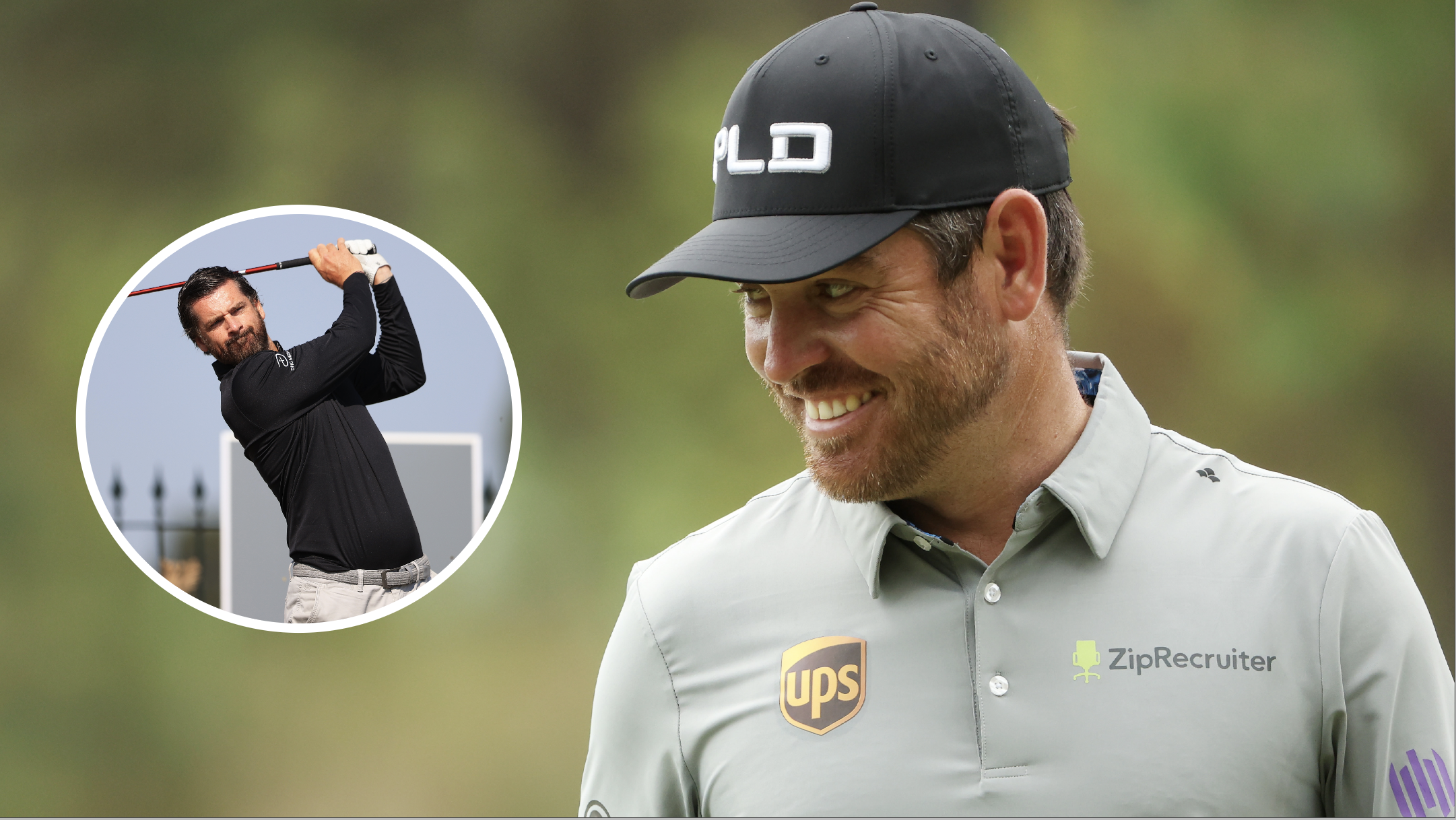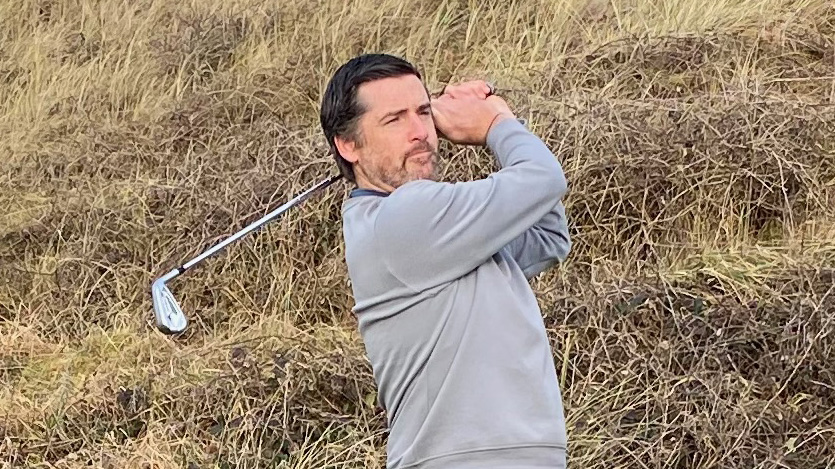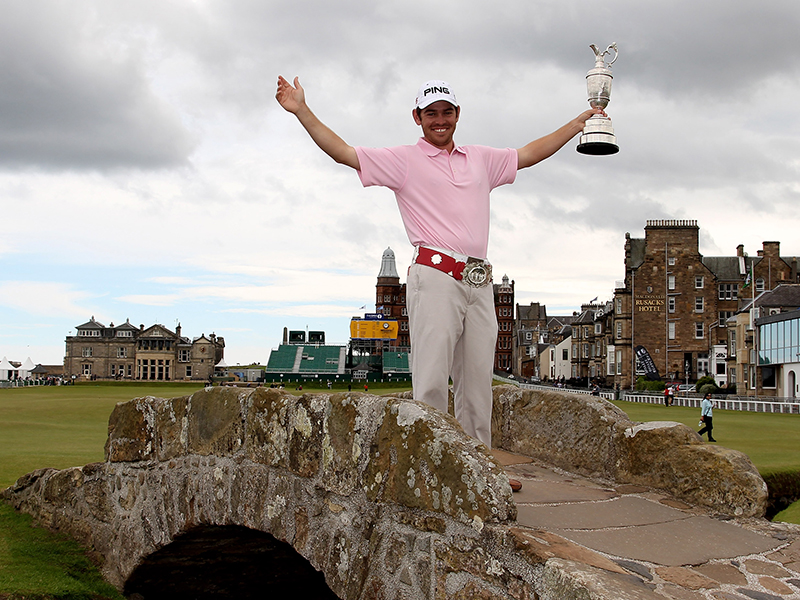
Numerous factors determine whether someone has a long and successful career at the top level or spends several years scrambling to make ends meet on the mini-tours, eventually abandoning their dream of becoming a celebrated professional to prioritise a regular pay cheque. Golf can be ruthless.
Often, those who look nailed-on to forge trophy-laden careers on the DP World Tour or PGA Tour fall short of that goal, while others who don’t stand out from the crowd earn their seat at the highest table.
So many factors determine whether someone becomes a famous professional golfer or not. On the mini-tours and in the elite amateur game, most people have the talent to become solid top-tier players. But it’s not just about talent – factors like injuries, coaching, work ethic, funding, management and luck all play their part.
Golf Monthly’s Joe Ferguson played elite amateur and mini-tour golf alongside some of the stars of today’s game. One name comes instantly to mind when I ask him to name someone he played with who has gone on to be more successful than he expected: Louis Oosthuizen.
“First off, I want to say that I have a lot of respect for Louis Oosthuizen. He’s had an incredible career and clearly he’s gone on to be a far better golfer than me. He’s also a lovely guy. I’m basing this off two rounds I played with him at the 2002 Amateur Championship at Royal Porthcawl and Pyle & Kenfig.
“I was actually leading after day one. It was blowing a hurricane and I shot a couple under. I was playing with this young South African and I met him for the first time on the 1st tee. He was very polite and softly spoken, as he still is, and I warmed to him straight away.
“I distinctly remember him lashing one down the 1st with that silky swing and thinking ‘here’s a ball-striker’, but he went into a bunker and ended up making a bogey.
“From there out – and obviously this is incorrect with the benefit of hindsight – he looked like a lot of guys I’d played with who could flush it, but who struggled with the game nous to get the ball around a tricky golf course. He struck it beautifully, but he was quite raw and he didn’t hole very much. He shot 75-79 over the two days – a few worse than me.”
Joe was in the England set up at the time and felt he was good enough to forge a successful professional career – vindicated by the fact that, after the first round, he sat atop a leaderboard of 288 of the world’s best amateur golfers.

“I didn’t think much of Louis at the time, because I’d played with a lot of similar guys who swung it nicely and could stripe it,” he adds. “I categorised him as someone else who could do all that but was missing something. I honestly didn’t think he’d make it at the top level.
“That said, the flip side is that if you play with someone who can’t hit it that well but has craft, guile and an ability to get the ball in the hole, you probably don’t think they’re going to make it either.
“Louis told me on the way round how Ernie Els was helping him and I remember that piquing my interest. I thought he must have something if Ernie was involved.”
The South African – who won the 2010 Open Championship and has finished runner-up in all four Major Championships – has won just shy of €20m on the DP World Tour and more than $28m on the PGA Tour. He's already earned over $5m on the LIV Golf Tour in 2024.
A few years after the 2002 Amateur Championship, Joe recalls seeing Oosthuizen’s name on a DP World Tour leaderboard, but he says he didn’t think too much of it – a lot can happen in a short space of time and this was some years later. Perhaps he’d worked a lot on his game in the intervening years, or maybe he just had an off couple of days when they played together in Wales.
“The next time I heard his name, it almost felt like it came out of nowhere. He was leading The Open at St Andrews and he went on to win by seven shots. He carved the field apart. That really made me sit up with a jolt. I was pretty taken aback.
“There were other guys whose careers I followed with interest who I was convinced were going to turn into serious players. Oosthuizen wasn’t really on my radar to be perfectly honest.”

Joe can recall countless other examples of current stars struggling in the unpaid ranks. He once played in the England Under-18 Championships alongside Martin Kaymer, who finished dead last of those who made the cut. Since then, the German has gone on to play in multiple Ryder Cups, win two Majors and reach World No.1.
There are a multitude of factors that feed into whether someone makes it at the highest level or lot, and Joe is keen to stress the importance of self-belief, work ethic and perseverance.
“I was in the England squad with David Horsey and we were out in Belgium at the European Strokeplay Championships. On the first practice day, I arrived with the squad on the team bus, but Dave was there already and had been for an hour. He’d got himself there early.
“You wouldn’t say he was the most naturally talented player in that squad, but he worked harder than anyone and he now has four DP World Tour titles to his name.
“The unquantifiables that you can’t see are so incredibly important.”







